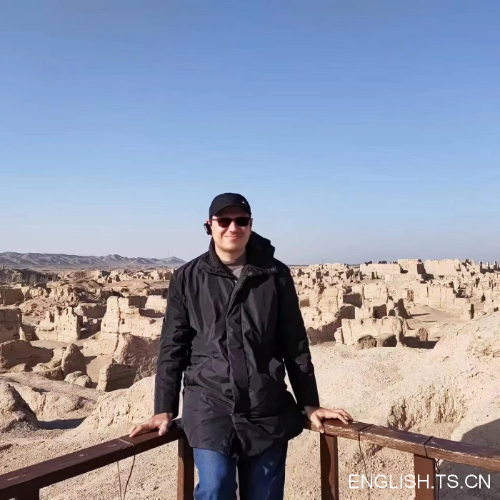Nowadays, as part of the efforts to promote common prosperity for the Chinese people, Xinjiang, a region still less developed than eastern provinces, has been receiving more investments to reduce the development gap between different regions of China. In 2024, China’s GDP experienced a 5% growth, while Xinjiang’s GDP growth reached 6.1%.
Xinjiang is also essential for China’s food security, as the region has a vast agricultural potential yet to be explored. During visits to farms in Xinjiang, I discovered interesting and inovative initiatives to increase agricultural production, transform wastelands in farmlands, improve storage and logistics for agricultural supply chains, develop rural tourism and add value to local agricultural products.
During my latest visit to Xinjiang last year, I visited companies related to the energy sector and was amazed by the fast development of the renewable energy industry in the region. Aside from being rich in renewable energy resources such as wind and sunlight, Xinjiang has also been developing industrial chains to produce windmills and solar panels, not only for China’s domestic market, but also for export.

The outstanding development of renewable energy in China, where Xinjiang plays a central role, is being noticed worldwide. In a recent interview, André Correa do Lago, president of this year’s COP30 in Brazil, highlighted the importance of China’s efforts against climate change: with government sponsorship, the Chinese solar panel industry has experienced rapid growth in recent years and contributed to reducing the costs of such products, making renewable energy popular in developing countries.
But the most important aspect of Xinjiang’s development is the improvement of people’s wellfare. Improvements in education, healthcare and elder care, the outstanding work on poverty alleviation and the rise in per capita disposable income of urban and rural residents in recent years.
Better living conditions also play an important role in preserving the cultural heritages and traditions of Xinjiang, because livelihood security enables people to dedicate more time to hobbies and leisure, while e-commerce platforms and the tourism industry create oportunities for local artisans and artists to promote and sell cultural products.
Rafael Henrique Zerbetto is a foreign editor at the Asia-Pacific Center of China International Communications Group.
Producer: Xiao Chunfei
Supervisors: Ding Tao and Jie Wenjin
Planners: Jie Wenjin and Cheng Li
Reviewers: Cheng Li and Hou Weili
Editor: Gvlzar Mijit









